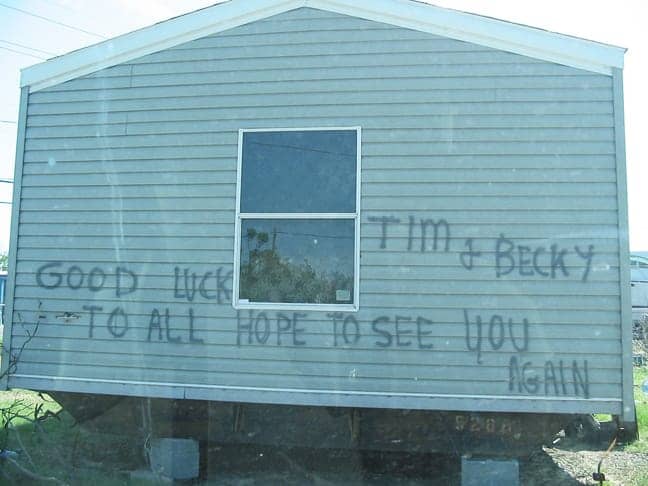by Congresswoman Maxine Waters

I know the president shares my concern, which is why he went to New Orleans recently. By visiting a charter school in the Lower 9th Ward and by holding a town hall event, at which the president heard directly from New Orleanians, he is demonstrating his commitment to the city.
There have been 18 official trips by the Obama administration to the city since January – 35 to the larger Gulf Coast area. The administration has made significant headway in resolving dozens of federal-state reconstruction project disputes and has released approximately $1.5 billion in additional federal aid to supplement ongoing recovery projects.
The Housing and Community Opportunity Subcommittee, which I chair, held two days of field hearings in New Orleans in August to examine the city’s recovery and the role of the Road Home and public housing programs in that recovery. The hearings revealed that the Road Home program needs improvement and additional flexibility so that homeowners receive the funding they need to rebuild their homes.
As a result of these hearings, I am pressing Road Home officials to resolve the problems homeowners have encountered. I’ve also begun drafting legislation to give Road Home administrators the flexibility they need to expand the assistance they can provide to homeowners.
The hearings also shed light on the state of the city’s affordable housing stock following the storm, including the dramatic reduction in public housing as a result of the demolition of the “Big Four” public housing developments. The “Big Four” comprised over 4,500 public housing units that provided much needed affordable housing for families typically earning less than 30 percent of area median income. The units were demolished in 2008; now, the city plans to rebuild 668 public housing units and 1,236 project-based voucher and tax credit units to replace them.

Unfortunately, recent actions by local government officials threaten to make affordable housing even more of a limited commodity. Officials in St. Bernard Parish were held in contempt of court three times by a federal judge for repeated violations of the Fair Housing Act. The parish had refused to grant building permits to a developer who wanted to build multifamily mixed-income housing. While the parish eventually granted the permits, it is now proposing a referendum that would allow voters to ban multifamily housing in the future — essentially performing an end-run around fair housing and civil rights laws. I am extremely concerned about this proposed referendum and have expressed these concerns to the Department of Justice.
While New Orleans has come a long way since Hurricane Katrina, much work remains to be done. Affordable housing is a critical part of the city’s recovery, and I look forward to working with state, local and federal officials to ensure that affordable housing remains available within the city.”
Contact Congresswoman Maxine Waters at 2344 Rayburn House Office Building, Washington DC 20515, phone (202) 225-2201, fax (202) 225-7854, website www.house.gov/waters.





